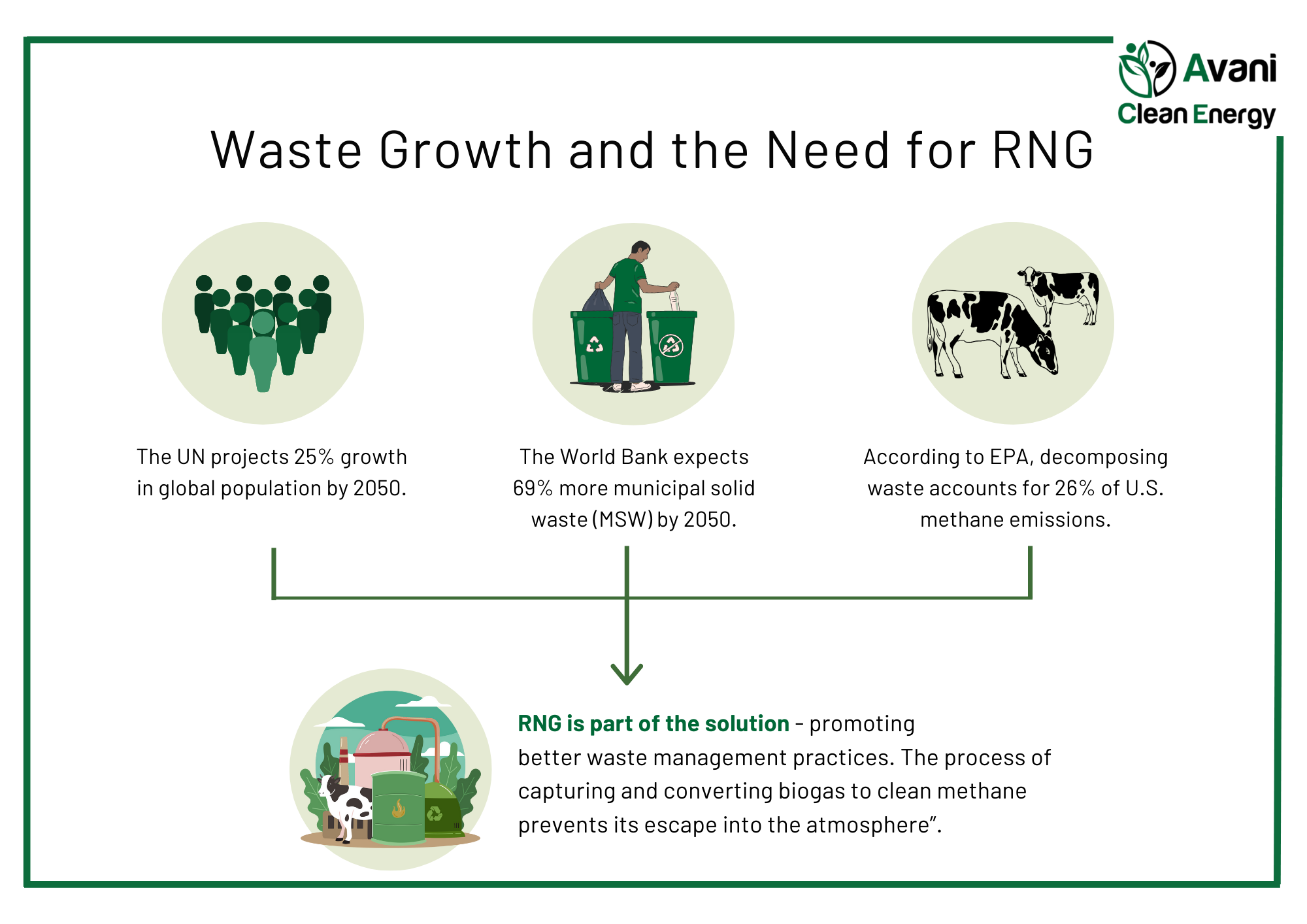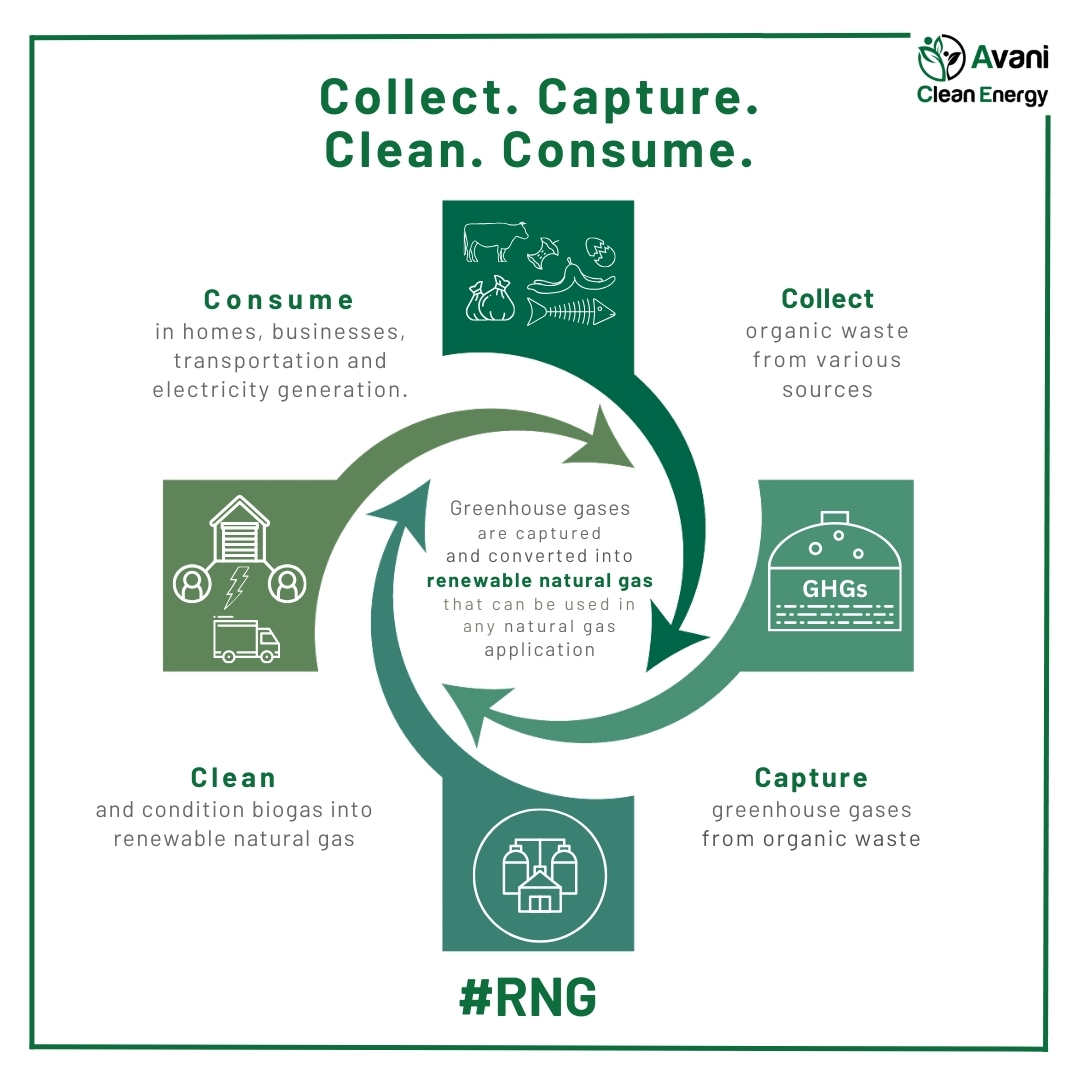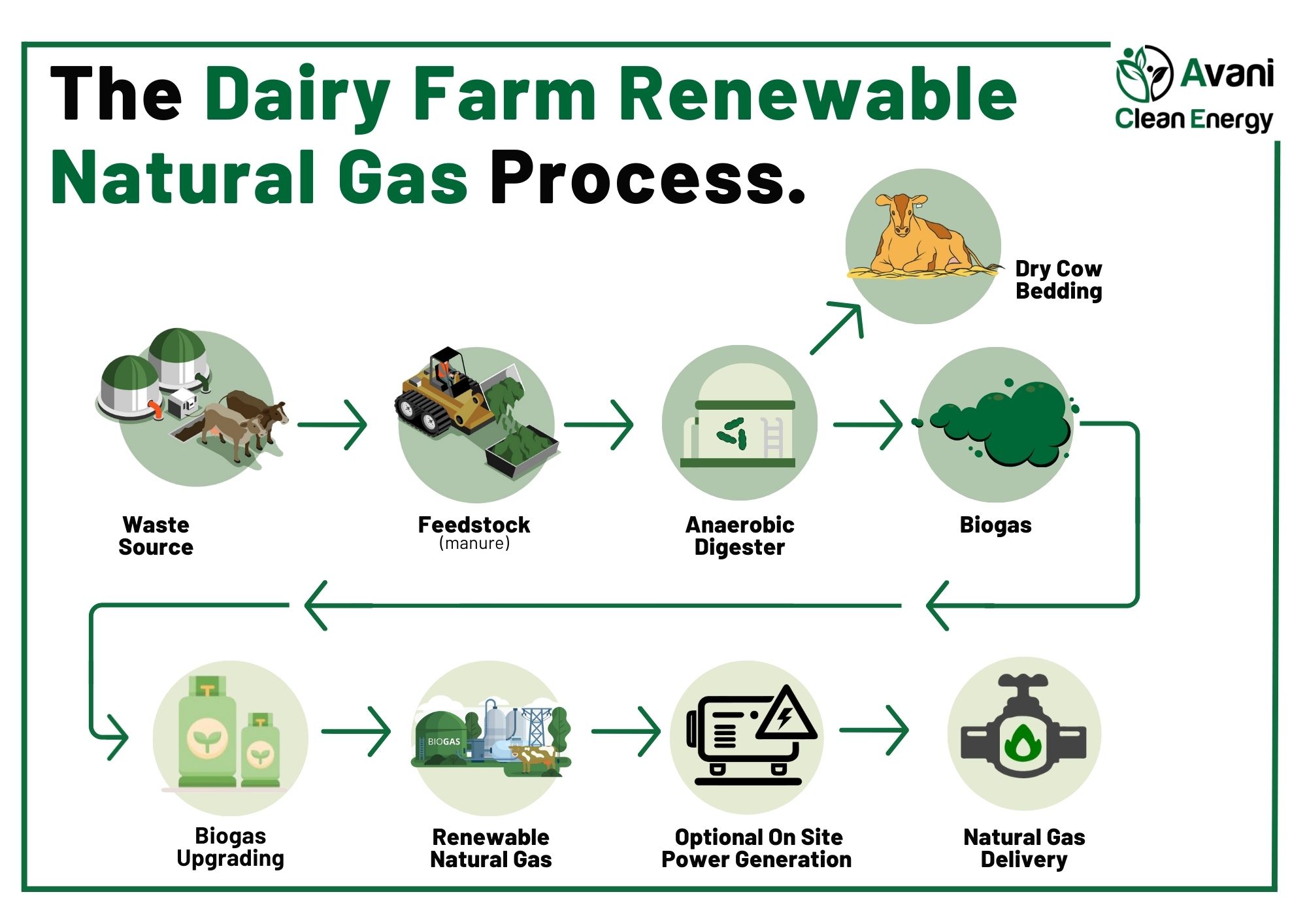RENEWABLE ENERGY
What is renewable natural gas?
Renewable Natural Gas, or RNG, is biogas that has been upgraded for use in the conventional natural gas systems. RNG is created by capturing emissions from society’s waste streams such as food waste, manure, municipal solid waste, and wastewater. These emissions are not pure like conventional commercially used fuels, and must be upgraded. Once upgraded to RNG, it has the lowest lifecycle carbon intensity (CI) of any clean energy source today, and it can be injected and transported through natural gas pipeline networks and used as a substitute that is virtually indistinguishable from natural gas. According to the International Energy Agency (IEA), RNG plays an essential, long-term clean energy role because it can be used as a feedstock to produce renewable electricity, heat, fuel, and renewable hydrogen (RH2). When used as a transportation fuel in the trucking industry, it helps reduce methane and other transportation emissions, solving the two most critical greenhouse gas issues causing climate change today (according to United Nations Environment Programme).

The Process for Capturing and Cleaning RNG

Benefits of RNG
- The U.S. and California classify RNG as an advanced biofuel for transportation
- It helps improve fuel security, economic revenues or savings, local air quality, and greenhouse gas reductions
- Producing RNG helps reduce agricultural methane release in the atmosphere
- RNG could reduce yearly emissions from animal manure by 258 million tons
- RNG production may reduce manure runoff into rivers and water supplies

